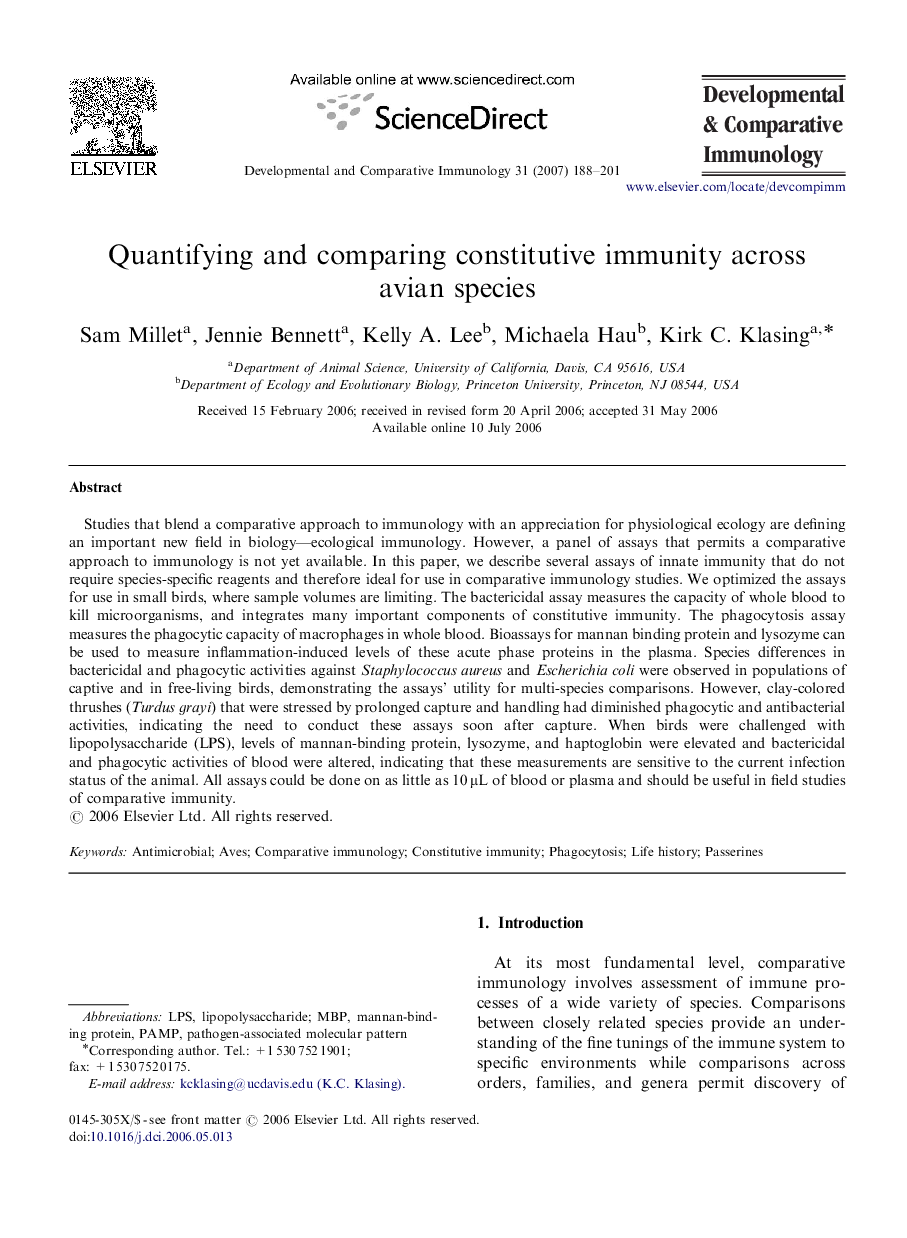| Article ID | Journal | Published Year | Pages | File Type |
|---|---|---|---|---|
| 2430454 | Developmental & Comparative Immunology | 2007 | 14 Pages |
Studies that blend a comparative approach to immunology with an appreciation for physiological ecology are defining an important new field in biology—ecological immunology. However, a panel of assays that permits a comparative approach to immunology is not yet available. In this paper, we describe several assays of innate immunity that do not require species-specific reagents and therefore ideal for use in comparative immunology studies. We optimized the assays for use in small birds, where sample volumes are limiting. The bactericidal assay measures the capacity of whole blood to kill microorganisms, and integrates many important components of constitutive immunity. The phagocytosis assay measures the phagocytic capacity of macrophages in whole blood. Bioassays for mannan binding protein and lysozyme can be used to measure inflammation-induced levels of these acute phase proteins in the plasma. Species differences in bactericidal and phagocytic activities against Staphylococcus aureus and Escherichia coli were observed in populations of captive and in free-living birds, demonstrating the assays’ utility for multi-species comparisons. However, clay-colored thrushes (Turdus grayi) that were stressed by prolonged capture and handling had diminished phagocytic and antibacterial activities, indicating the need to conduct these assays soon after capture. When birds were challenged with lipopolysaccharide (LPS), levels of mannan-binding protein, lysozyme, and haptoglobin were elevated and bactericidal and phagocytic activities of blood were altered, indicating that these measurements are sensitive to the current infection status of the animal. All assays could be done on as little as 10 μL of blood or plasma and should be useful in field studies of comparative immunity.
